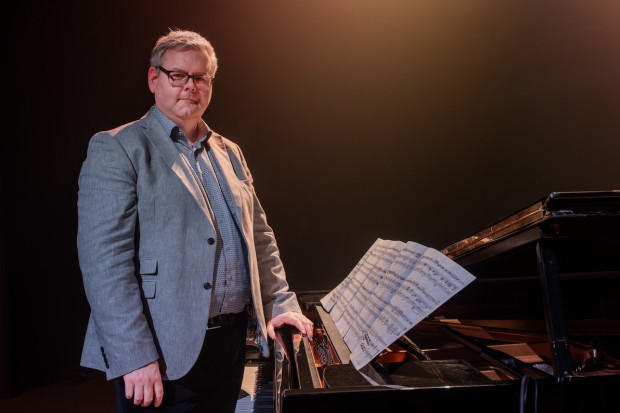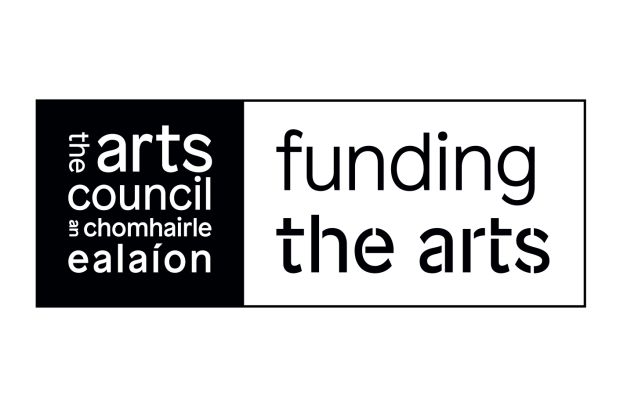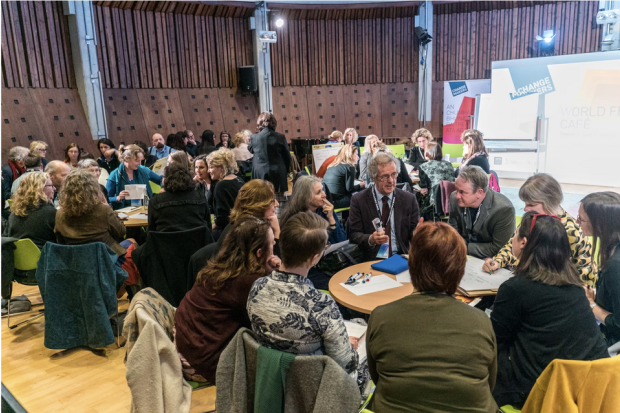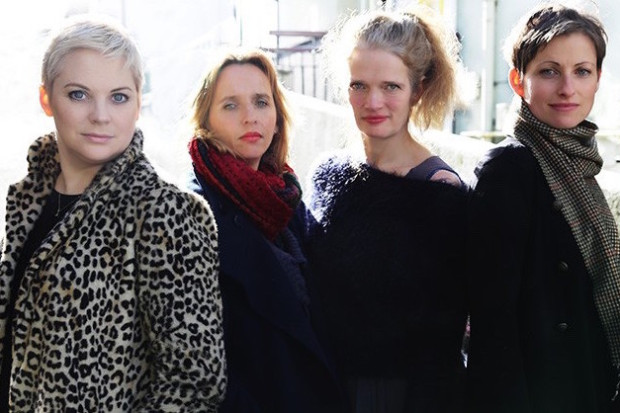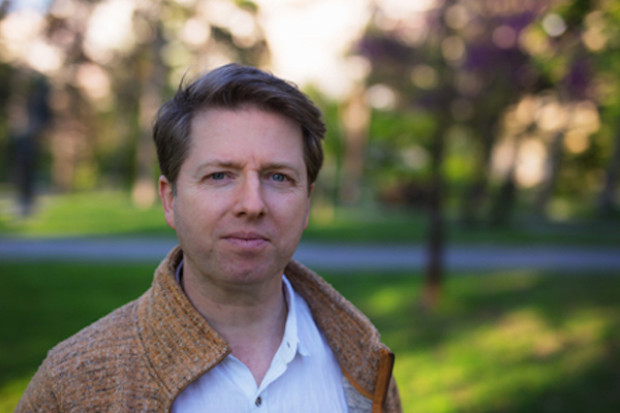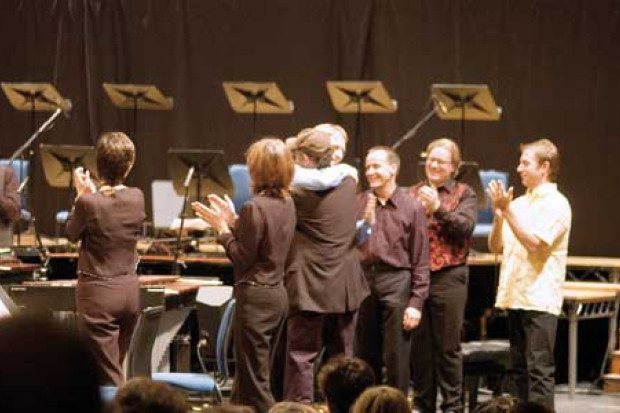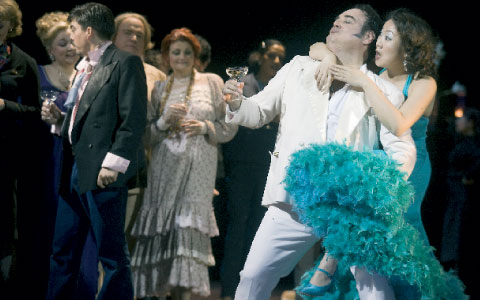
Recession Opera
In camus’ novel The Plague, the narrator describes the scene at the municipal opera house where the well-to-do come every week: a touring company, quarantined in the city like everybody else, performs a single work, Orpheus and Eurydice, over and over again for an audience that is glad to be able to forget the crisis outside for a few hours and re-establish its former sense of self-assurance. The image of rich people chatting unconcernedly through repeats from a hermetically sealed repertoire may still seem more than a little familiar, sixty-odd years after the book was written – above all just at the moment, with financial pestilence ravaging the world beyond the red velvet doors. And just as Camus’ socialites can no longer keep up the pretence when, in an unforgivably definitive departure from the libretto one evening, it is Orpheus and not his beloved who drops dead on stage, you’d think today’s opera community too would now be forced to admit that the party is finally over.
Not necessarily. In Italy, home of the art-form, those in the business will certainly tell you things are pretty grim, following drastic cuts in state funding since 2005. Singers at La Scala have even gone on hunger-strike in protest. Those cuts, however, were applied across the entire arts sector, with no special measures for the most expensive. So far there’s not much evidence that it’s the credit crunch in particular that’s to blame. And in any case, it’s all relative: counting up the various contributions from national, regional and civic government, as well as sponsorship from companies that are at least partly state-owned, La Scala probably still gets around €100 million of public money a year.
Now so important to the socio-cultural identity of Italy, though, opera will surely be the last thing to go. In Ireland, for example, you’d expect the situation to be very different, and sure enough it has always lagged behind even its closest neighbours. In Britain, the core institutions (the Royal Opera, English National Opera, Welsh National Opera, Opera North and Scottish Opera) are complemented by several dynamic touring companies and some world-famous festivals. The Royal Opera House is the most heavily subsidised arts institution, and public spending on opera per head of the population is well ahead of the Irish equivalent. By contrast, Opera Ireland produces four main productions each year, Opera Theatre Company tours on average three productions and the Wexford Festival lasts just eighteen days. Opera in Northern Ireland is even more poorly provided for: two small summer festivals (Castleward and Opera Fringe) and occasional visits (from Opera North and OTC). The Arts Council is currently engaged in a serious review of even that meagre provision.
And yet Ireland’s composers are busily writing in the genre, despite the apparently unconducive economic environment and despite the complaints that Irish companies (with the sometime exception of OTC) never put on home-made works. At least six operas are currently in a late stage of development, or have recently been completed, by composers working on the island. A recent symposium in the University of Ulster on the subject provided an opportunity for composers, practitioners, funders and academics to come together to discuss the current state of the art-form, and the debate, both on the day and in subsequent exchanges, revealed a vitality that may have surprised even the participants.
New approaches
To begin, Ian Wilson talked about his most recent chamber opera, Minsk, and even gave a one-man performance of part of the first scene. This work, although composed in the most traditional way, i.e. from a finished libretto that is a poetic work in its own right, self-consciously acknowledges the artificiality of opera, and so any ‘real-life’ action uses only spoken text. (Most of it, though, takes place in the main character’s dream, and is thus sung.)
Laurence Roman’s opera, Isabella and the Pot of Basil, composed to a blank-verse libretto by the composer himself, had a similar genesis and adopts a similar conceit: sung and spoken passages alternate, allowing two equally powerful dramatic worlds to co-exist.
But the discussion soon moved on to the possibilities for blurring, rather than holding in creative tension, the boundaries between opera and spoken theatre, and even of concert performance. Wilson’s new project, Una santa oscura, will function rather like an opera with no singers, with violinist Ioana Petcu-Colan the main protagonist in a large-scale work with live and electronic scores, costume, staging, video design and direction by Tom Creed of Rough Magic Theatre: ‘No text will be present, no overt narrative supplied, but nonetheless a strong sense of character will become apparent through intimation and the gradual accretion of sonic and visual gestures and clues’.
The current work-in-progress of Brian Irvine and writer/director John McIlduff will be even more fluid; as McIlduff put it, ‘We have a very broad view about the work we create, who will be involved and what our potential public is. What’s almost certain is that there will be music and some form of visual/dramatic experience, live or recorded’. Certainly, one part of the project is the joint Wexford Festival Opera/Opera Fringe commission, entitled Dumbworld, which operates within traditional boundaries: a show for a theatre; bums on seats. The nature of the work, however, means that the creators will need to recruit a large group of non-professional participants in each new venue: ‘It’s a fundamental part of our artistic vision for this piece – but we also see it as a way of involving people who may never have set foot in a theatre’.
As well as bringing new audiences in, there was plenty of interest in taking the works themselves out – out from traditional opera houses and into found spaces, some less likely than others. Laurence Roman talked about a promenade production of Isabella set in a library, in which cast-members had mingled disorientatingly with the audience; Irvine and McIlduff described their plans for ambushing members of the public in supermarkets, airport lounges and so on: ‘Our short-format operas are created specifically for a particular non-theatrical space and are embedded into the texture of the surroundings. They’re not so much shows as happenings, designed to be captured on video and distributed over the internet’.
And why not? As composer John McLachlan pointed out, opera can be any combination of music and drama, a starting point for a re-consideration of multimedia – or, indeed, of the audience. We have had television operas, what about animated operas? We have had operas with live steadicams, with robotic lighting, and with text projected onto the characters. Come to that, we now regularly have simultaneous high-definition broadcast of performances from the most illustrious opera houses to cinemas up and down the country that are, well, somewhat less illustrious. These days, academics whose research and teaching is focused on opera, and who thus have a vested interest in the continued vitality of production, increasingly see as central the question of how opera has adapted (and might continue to adapt) to new cultural realities, and how these transformations relate to its established identity and traditions. This, announced Christopher Morris from University College Cork, is the premise of ‘Transforming Opera’, a brand-new international research network based in Ireland that will engage directly with colleagues involved in delivery, funding and dissemination of the art-form.
One thing at least that the university people can bring to the table is historical perspective. Even if it would be going too far to claim that the funding structures governing opera in, say, 1830s Paris tell you all you need to know about how the current situation at the Arts Councils came about (there are similarities), it’s salutary to place the technological dimension in context. Pretty much every new gadget that has come along, from electric light to roller skates, has appeared on the opera stage while still relatively new. (Even film: Berg’s Lulu was begun in 1928.) So if, as McLachlan described it, the creative impulse leads composers away from theatres or from live action, it might, just might, be leading towards a more meaningful connection with audiences who have become alienated from opera – as Roman remarked, any connection whatsoever would be a start – these are nonetheless the same audiences who have been wooed with machinery since the 1600s, but who have stayed, if at all, on account of the singing.
For if you have to drag your opera audience in off the streets, lie in wait for them where they least expect you, or distract them with gizmos so they don’t mind the voices, the question not only of what you’re doing, but in the end also why you’re doing it, is bound to arise. In the words of Rosa Solinas, Artistic Director of Opera Fringe, ‘Outreach is all very well, and the funders are very clear about whom we have to reach out to – but what are we reaching out with?’
Old problems
Ian Urwin, Artistic Director of Castleward Opera, agreed: ‘The Arts Council places great emphasis on education, and rightly so. However, no meaningful education can take place without the opportunity of experiencing good quality live opera. It is all very well commissioning new operas for children, and yes of course it is great fun, but I doubt if it does any good in the long run’. This may be missing the point about children’s opera (from Britten’s Noye’s Fludde onwards, it has been about putting them in a proximity to professional performers that can only be achieved by direct participation), but he is surely right about the importance of the live experience. The striking thing about mobile-phone salesman Paul Potts’ victory in ITV’s Britain’s Got Talent show in 2007 was not that he sang ‘Nessun dorma’ (it is, after all, a song about winning a contest), or that he did eventually win (the piece has for a generation now been deeply embedded in popular culture), but the spontaneous tears shed by one of the judges, Amanda Holden, the first time he sang. Being close to a genuinely operatic voice is a visceral, hairs-on-the-back-of-the-neck kind of experience. What effect would it have had on her, you wonder, if it had been Pavarotti singing, circa 1967?
The problem is, voices like that are expensive, and so are the works they were trained for. Philip Hammond of the Arts Council of Northern Ireland put it bluntly: ‘The available resources simply won’t stretch to cover adequately the nineteenth- or early twentieth-century repertoire. We need to go for what we can achieve with high artistic standards, and that means modern or Baroque’. Áine Sheil from UCC, describing the situation south of the border, echoed the point about resources: while Irish opera funding has actually increased in the past few years at a much higher rate than for most other art-forms, ‘support in 2008 (€4.11m) represented a peak. The drop of 3.94% in the 2009 figures may seem slight in comparison with cutbacks in other areas, and has not resulted in significant losses for the three main providers, but Opera 2005 and Lyric Opera Productions have had funding withdrawn.’
Meanwhile, down in Wexford, if nowhere else, the party seems far from over – for now. On the occasion of the opening of the new opera house last October, it was in full swing. Lush productions, quite a few rich people, and with that much champagne going around it was easy for even the rest of us to feel unconcerned. The repertoire was nowhere near routine, in the hallowed Wexford tradition, and there were one or two truly lovely voices, as there always are.
When Camus’ Orpheus collapses onto the Act 3 scenery, the novelist observes that the décor had always been anachronistic, but had never seemed so to the audience until that fateful moment; in times of crisis, production values do indeed come into sometimes uncomfortable focus. But great singing, of whatever repertoire, will never go out of style.
Published on 1 April 2009
Cormac Newark writes on nineteenth-century French and Italian opera and literature and currently lectures at the University of Ulster.












